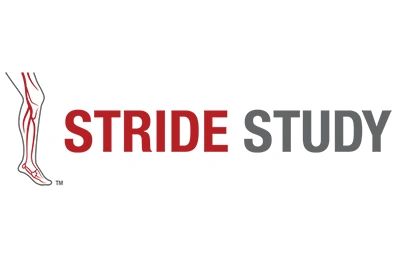New Data Demonstrates Indigo Aspiration System Improves ALI Patient Outcomes – STRIDE Study

Acute Limb Ischemia (ALI) occurs when there is a sudden lack of blood flow to a limb, which is often caused by a blood clot. Although treatable, ALI is associated with high amputation rates and mortality if not treated immediately. However, new data from the STRIDE study shows for the first time that the use of Penumbra’s Indigo® Aspiration System in lower extremity acute limb ischemia is safe and effective with excellent 30-day limb salvage rates and low mortality. The fully enrolled, 30-day STRIDE data was presented at this week’s Charing Cross International Symposium.
“ALI is a serious condition that requires urgent treatment, and amputation is often considered without hesitation,” said Thomas Maldonado, M.D., national principal investigator of the STRIDE study, and professor of surgery at the New York University of Langone Health. “The 30-day STRIDE data is encouraging as the trial showed that we can save a patient’s limb more than 98% of time. When you look at traditional open vascular surgery to perform an embolectomy, data suggests an 83% 30-day limb salvage rate. As we continue to evaluate mechanical thrombectomy as frontline treatment, this clinical evidence, and the addition of new technology such as Penumbra’s Lightning BoltTM 7, could represent a new frontier in helping patients with acute limb ischemia.”
The STRIDE study is an international, multi-center, prospective, single-arm study using mechanical thrombectomy with Indigo Aspiration System as frontline treatment. The study enrolled 119 patients from 16 centers across the United States and Europe. The primary endpoint of the study, target limb salvage, was achieved in 98.2% of patients. The Indigo system was able to achieve these high rates of limb salvage and low rate of mortality in just 22 minutes of device time. Penumbra’s Indigo Aspiration System is a minimally invasive continuous aspiration device that can be used to quickly remove emboli and thrombi from vessels of the peripheral arterial and venous systems.
“The STRIDE study showed that this technology was safe and effective for treating arterial thrombus, but also confirms that swift removal of these blood clots can also improve limb salvage and mortality rates at 30-days,” said Sean Lyden, M.D., investigator of the STRIDE study and chairman of the Department of Vascular Surgery at Cleveland Clinic’s Sydell and Arnold Miller Family Heart, Vascular & Thoracic Institute. “In addition to the endpoint success, the STRIDE study enrolled a diverse patient population with more than 46% of the patients enrolled being female, an often-underrepresented population in arterial clinical studies.”
For more information about mechanical thrombectomy, visit www.penumbrainc.com.
Caution: Federal (USA) law restrictions these devices to sale by or on the order of a physician. Prior to use, please refer to the Instructions for Use for complete product indications, contraindications, warnings, precautions, potential adverse events, and detailed instructions for use. Please click here for the complete IFU Summary Statements. Please contact your local Penumbra representative for more information.
Related Articles
-
Employee Spotlight: Pascual Reginio
June 26, 2025 -
Penumbra’s Newly Expanded swiftPAC™ Coil Line Poised to Help Physicians Meet Growing Demand for Neurosurgical Conditions
June 20, 2025 -
New THRIVE Data Demonstrates Penumbra’s CAVT™ Technology Is Associated with Reduced Related Readmissions and Complication Rates When Managing ALI
June 6, 2025 -
Employee Spotlight: Maria R. Contreras
May 29, 2025
